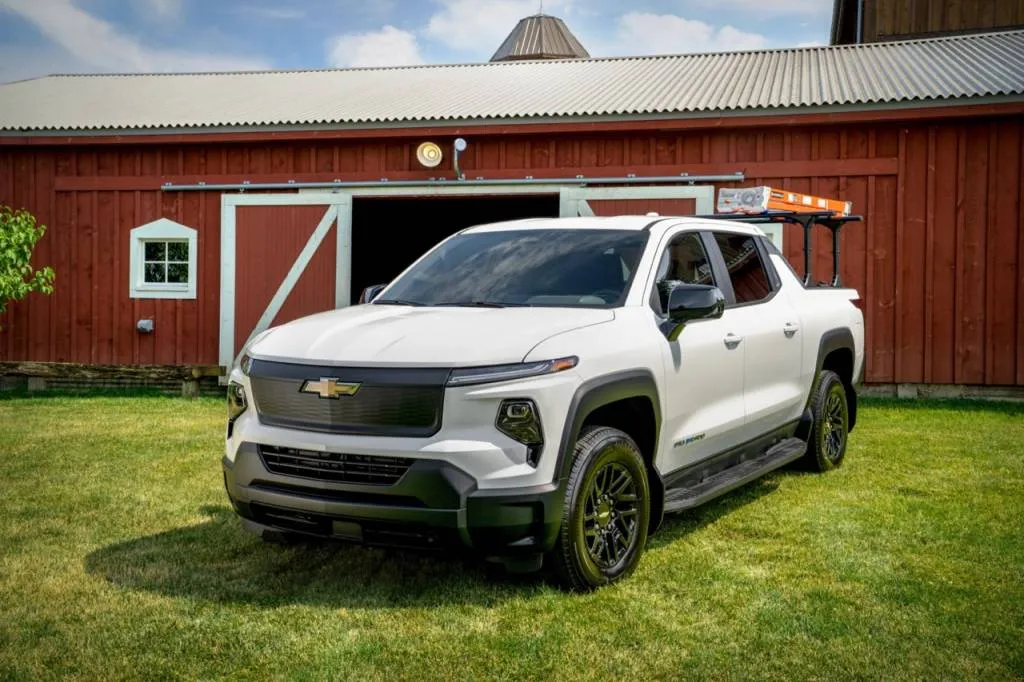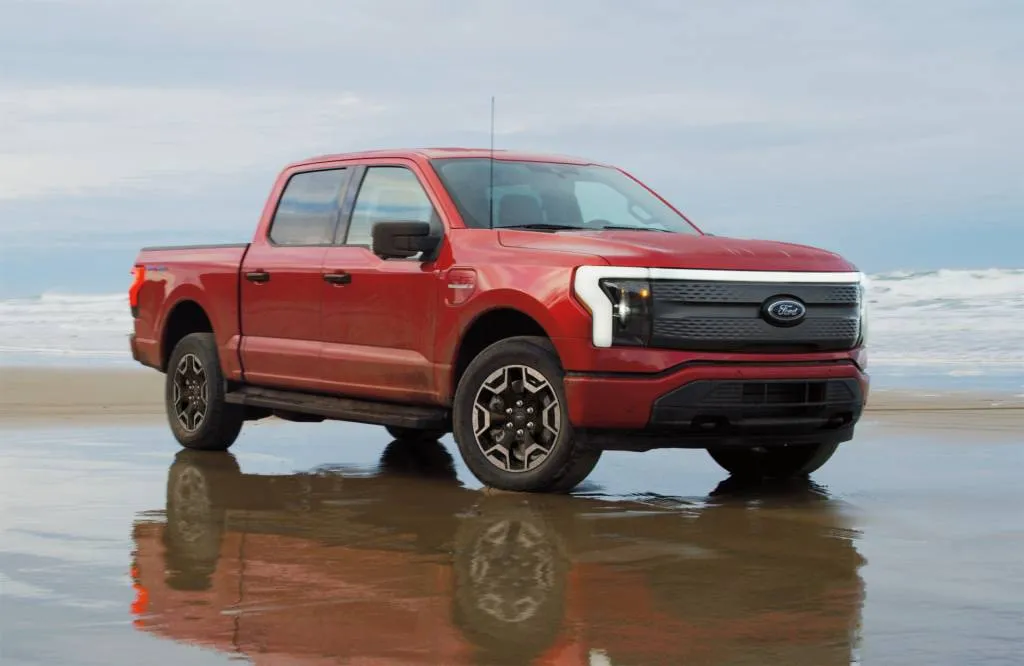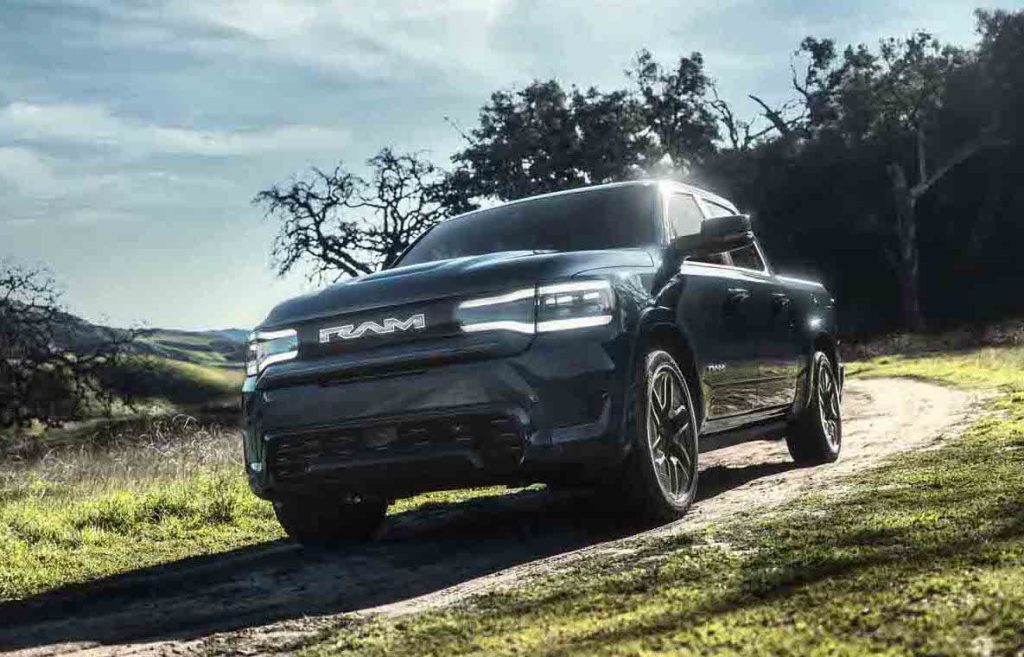Despite professed support for EVs, many automakers are quietly fighting proposed EPA emissions rules that would require expanded EV sales, according to the National Resources Defense Council (NRDC).
The EPA this spring proposed tailpipe emissions rules for 2027-2032, setting a goal of reducing emissions by about 56% in 2032 compared to 2026 levels. To do that, the agency estimates automakers will need to sell a lot more EVs.
Current rules can be met with about 17% EVs by 2026, while the new rules may nudge the percentage of EVs up to 67%, it projected. But they don’t mandate EVs.

2024 Chevrolet Silverado EV WT
Still, that appears to be too ambitious for many automakers, which have submitted public comments to the EPA criticizing the proposed rules that the NRDC highlighted in a recent blog post.
General Motors—which in 2021 announced an “aspiration” to eliminate tailpipes form its passenger cars by 2035—is only publicly backing an executive order from President Biden calling for 50% EV sales by 2030. Behind the scenes, may be seeking higher emission levels than what’s been proposed.
For instance, in comments filed July 4, GM appears to recommend higher NOx levels permitted for light-duty vehicles in the early years of the program, with lower levels in the later years of it versus what has been proposed. On the medium-duty vehicle side, it appears GM is recommending much higher NOx limits than what EPA has proposed.
Green Car Reports has reached out to GM for clarification on this filing, which likely has to do with the company’s profit-generating full-size trucks.

Los Angeles Smog
The NRDC notes that NOx reacts with atmospheric chemicals to form secondary fine particulate matter (PM2.5), or soot. That can cause stroke and respiratory issues, among other issues, while NOx also leads to the formation of ground-level ozone, leading to smog that can affect those with asthma and vulnerable populations.
Honda, in filed comments, said agencies shouldn’t treat automaker EV announcements “as foregone conclusions.”
Stellantis called the proposed rules an “overly optimistic expectation for EV market growth.” The automaker has promised 25 U.S.-market EVs by 2030, but isn’t discussing anticipated market share. Stellantis previously said it was aiming for 100% EV sales in Europe by 2030, but it has already begun to backtrack, adding gasoline versions of its Jeep Avenger in more European markets than originally discussed.

2023 Ford F-150 Lightning
Ford stands as an exception among full-line automakers. It submitted comments supporting the EPA’s proposed rules. The automaker said it “supports the 2032 endpoint of the multi-pollutant proposal, which may result in approximately 67 percent of new light- and medium-duty vehicles [being EVs].” It added that “Ford is all in on electrification. We are investing more than $50 billion through 2026 to deliver breakthrough electric vehicles (EVs) and reach a global run rate of 600,000 EVs a year by the end of this year and 2 million in 2026.”
The public comment period is part of the process of rule approval, which also includes reconciling EPA emissions rules with proposed Corporate Average Fuel Economy (CAFE) standards from the National Highway Traffic Safety Administration (NHTSA). That agency released its proposal in July, aiming for 43.5 mpg across new vehicles by 2032.
Meanwhile, California has been following through on regulatory steps that will essentially ban gasoline-fueled light vehicles by 2035—not counting plug-in hybrids. After attempting to revoke California’s emissions authority under the Clean Air Act, GM openly stated that it’s siding with the California rules in 2021. But once again it appears to be on two tracks—public and regulatory.
—
With reporting by Bengt Halvorson

